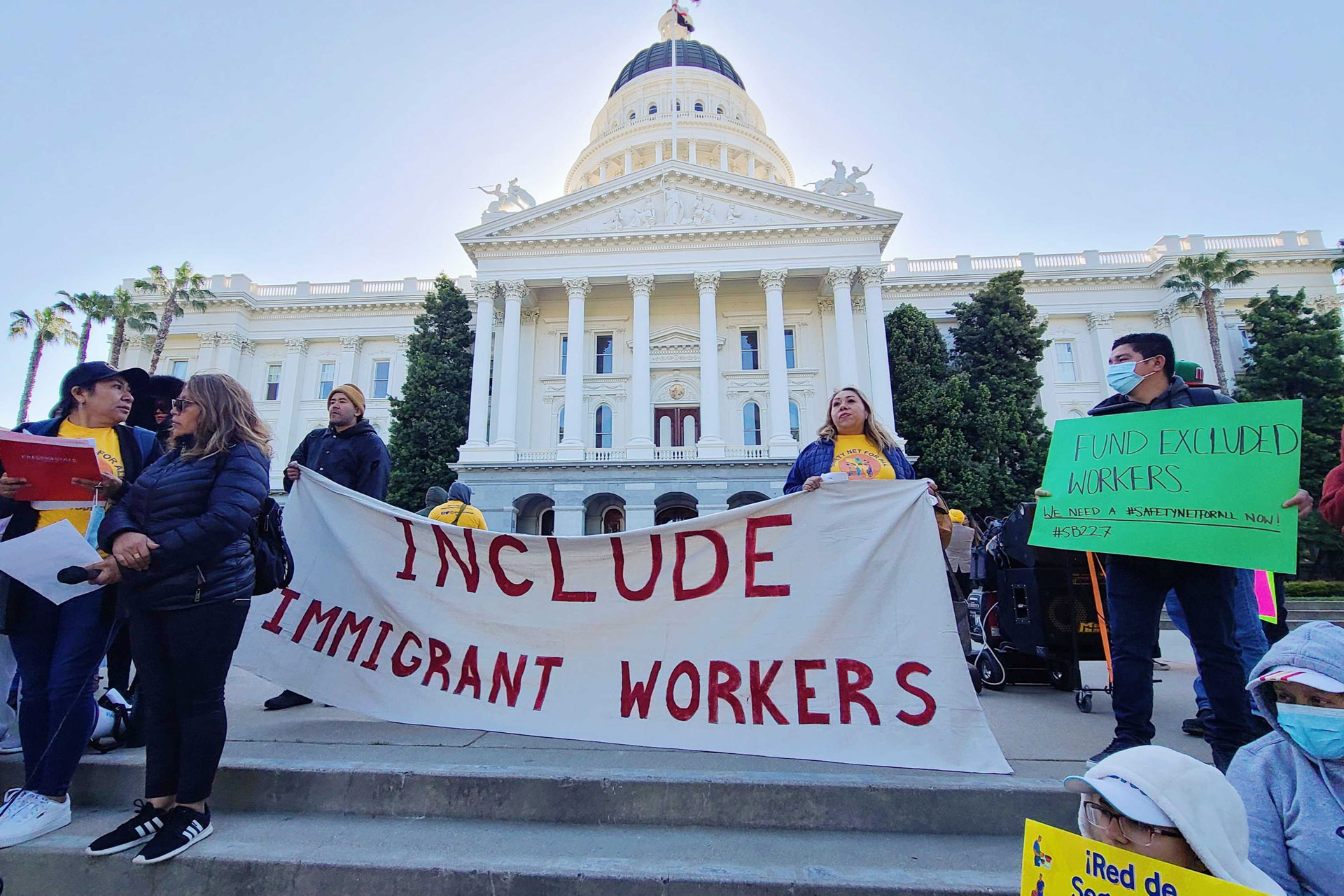Workers in California with immigrant status hinder them to receive additional social safety net benefits.
Immigrant status holder, Arturo Villanueva, 37, a tractor driver in the Oxnard lettuce fields, has been struggling to make ends meet after heavy rain flooded the fields and hindered his usual work.
Like many others, he is one of the many workers with immigrant status that cannot access unemployment insurance or government assistance programs. Despite California’s efforts to expand social and health services to workers with immigrant status, there are still gaps in the safety net.

Immigrant Status of California Immigrant Workers Hinders Them to Receive Unemployment Benefits | KQED
While the state has issued driver’s licenses, college scholarships, low-income tax credits, direct cash aid to immigrant status workers during the pandemic, and will provide food stamps to immigrant status holders over 55 in 2025, budget constraints have prevented further expansions, such as offering unemployment benefits.
Critics argue that the reluctance to extend benefits to undocumented immigrants stems from viewing them primarily as a source of labor, ultimately perpetuating a racist and exploitative perception of immigrant status holders. Although California has created its own state-funded programs to bypass federal restrictions, a $31.5 billion deficit this year has made it challenging to address the needs of immigrant status holders.
California Governor Gavin Newsom is backing the expansion of several programs, such as providing public health coverage to individual with immigrant status. This expansion will require an annual budget of $2.6 billion. However, he is reluctant to expand programs further unless the state can sustain for immigrant status holders financially.
A proposal for an unemployment program for workers like Villanueva did not receive funding for the second consecutive year. Critics claim that the expansion of services for undocumented immigrants cannot be supported financially in the long run.
As immigrants population ages, they will require retirement support and healthcare. Some argue that California can do more to assist immigrants in the absence of federal immigration policy reform.
According to UCLA Chair of Chicana/o Studies, Leisy Abrego, there is a demand for immigrant workers in California. The state recognizes this and advocates for treating these individuals with immigrant status as fellow human beings who require access to healthcare and education.
READ MORE| In California, Immigrant Status Bars Many Undocumented Workers From Benefits
























